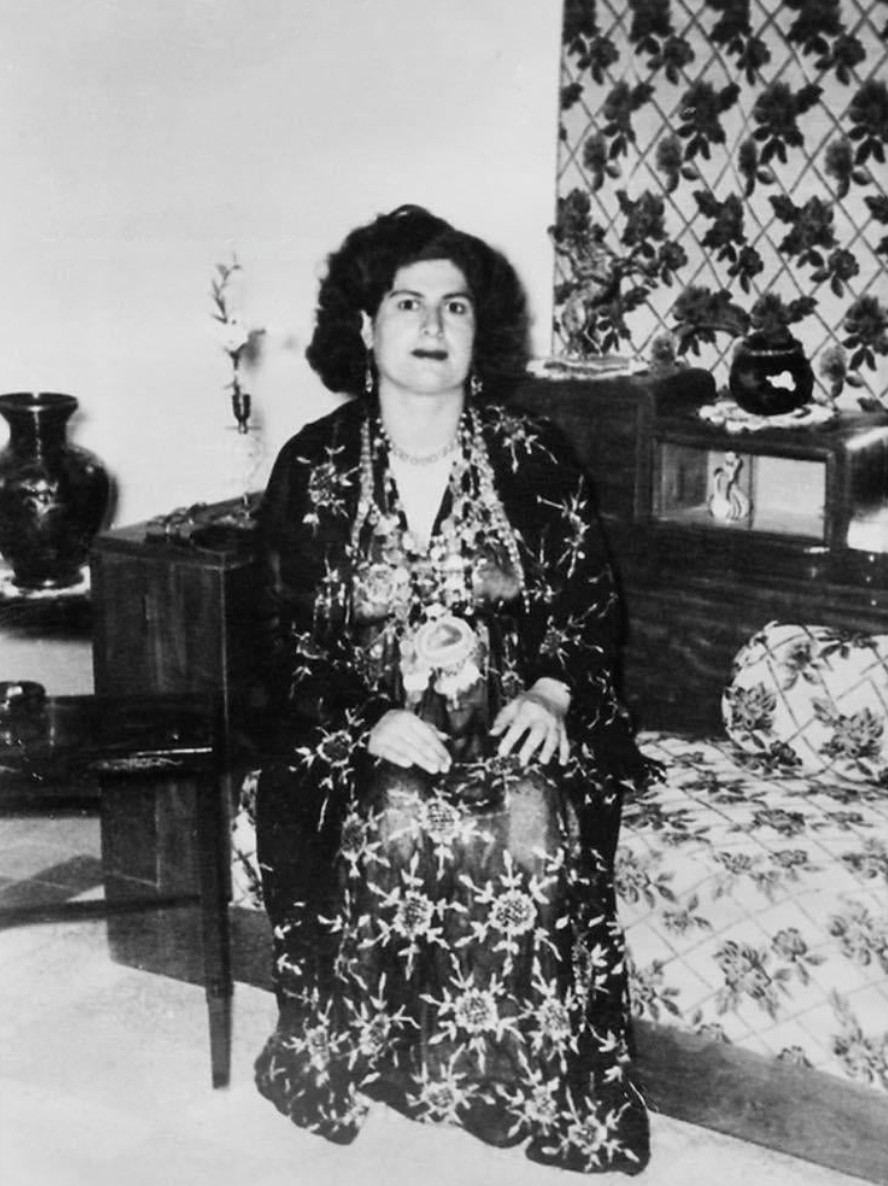The bittersweet tales of Kurdistan’s struggle for freedom are etched into the annals of history. While these stories are myriad, one woman’s life encapsulates the profound sacrifices made for a nation’s independence. On the 65th anniversary of the return of General Mustafa Barzani’s peshmerga comrades from the Soviet Union to Iraq and Kurdistan, Naype Buyuk, a Russian woman who lived through it all – and whose life was intimately intertwined with the Kurdish struggle – talked about her journey with Kurdistan Chronicle.

The 500
On May 18, 1947, General Mustafa Barzani, the national leader of the Kurdish liberation movement, and his comrades embarked on a journey that would come to symbolize a momentous chapter in the ongoing struggle for Kurdish independence. This expedition, known as the Epic of Aras, derived its name from the river that the group had to cross to reach the Soviet Union. Popularly referred to as “the 500,” Barzani and his peshmerga commenced their arduous trek from Mahabad city, the capital of the then-Republic of Mahabad in the Kurdish populated area of Iran known as Eastern Kurdistan.
Their grueling 53-day odyssey led them through the challenging terrain straddling the modern nations of Iraq, Iran, and Turkey, ultimately ending in the Soviet Union, where they sought asylum. This remarkable journey, marked by exile from their occupied homeland, constituted a pivotal juncture in the broader struggle for Kurdish liberation, ensuring the continued momentum of the Kurdish national movement.
The return journey was equally as arduous and momentous.

“I was just a young woman from Crimea, unaware of the monumental journey that awaited me. When I married Ali Mustafa Leloki-Dolamari [one of Barzani’s comrades], little did I know that his comradeship with General Mustafa Barzani would shape my life,” Naype recalled.
She vividly recalls the sense of patriotism and unity among Barzani's comrades. Despite their exile, they were bound by a shared vision of a free Kurdistan. “In those days, they helped each other and never lost their will and courage. They were patriotic, loyal, and freedom-loving people,” Naype said, reminiscing about the solidarity of the Kurdish fighters in the Soviet Union.
The dedication of these individuals knew no bounds, as they faced adversity, hunger, and cold in their quest for a liberated homeland. “We endured cold, hunger, happiness, and sorrow together, always under the guidance of the late Barzani,” Naype explained.
“When General Mustafa Barzani commanded us to return to Kurdistan and told us about the living conditions there, it was a turning point in our lives. We knew we had to go back,” Naype added.

An emotional return
In 1958 Naype’s life took a significant turn when the 500 received a message from General Mustafa Barzani himself, summoning them back to Kurdistan. With excitement and hope, they embarked on their journey back home. Naype’s family, among others, boarded the ship Grossia and, 16 days later, they arrived in Basra, Iraq. Welcomed by enthusiastic crowds, they were in the company of renowned figures, their journey representing a crucial moment in the Kurdish struggle.
Their return was an emotional experience. “We arrived in Basra, and people from all walks of life came to welcome us. General Barzani welcomed us all in Baghdad and shook hands with all the comrades. It was an unforgettable moment for all of us,” Naype recalled, the glint of nostalgia in her eyes.
In 1960, they were granted houses in Erbil, allowing them to start rebuilding their lives. Her husband Ali then joined the peshmerga during the Great September (Eylul) Revolution of 1961.
However, their return was not without trials. In 1963, Naype – along with 22 other Russian women and 65 children – was detained for six months by the Iraqi National Guard in Erbil. Despite the ordeal, they persevered, and their release was secured through various channels, including writing a letter to the Russian Embassy.

In the following years, they faced many challenges, including adapting to life in the Kurdistan Region, raising their children, and embracing a new culture. They gradually learned the Kurdish language, with Naype taking the initiative to learn alongside her children.
“Those were challenging times, but we were determined not to give up. We kept our spirits high, even in prison,” Naype said.
Six Russian women returned to their homeland, while the rest, including Naype, chose to remain in Kurdistan. “Our commitment to the Kurdish struggle was unyielding. We had chosen the difficult path for Kurdistan and never looked back,” she said.
“In my heart, I always remember General Barzani and the noble 500. I remember that they chose the difficult path for Kurdistan and am grateful to have witnessed the fruits of their struggle,” Naype said.
Naype’s story is a testament to the resilience and commitment of individuals who were ready to sacrifice their personal comfort for a greater cause. Throughout her life, she held steadfast to the enduring spirit of the Kurdish people and the pursuit of an independent Kurdistan.

Safar Jajoki is a journalist with the Khabt Daily Newspaper since 2007. He is based in Erbil, and is a member of the Kurdish Writers Union.

